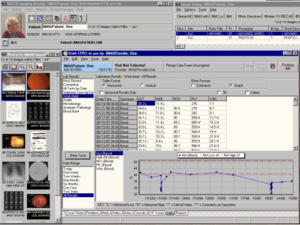Here’s a look at nurse practitioners’ attitudes to electronic health records.
Tim G. Bartol, N.P., the author, concludes:
“EHRs can track such easily measured tasks as diabetic foot screening, urine microalbumin measurement, or the patient’s smoking status. However, no research has shown that documenting these measures makes a difference in long-term patient outcomes. The EHR does not effectively measure other things that may have important implications for patient care, such as relationship, empathy, support, and caring between clinician and patient. It does not measure the value of the information produced on continuity of care for a patient over time.
“Rather than complaining about the EHR, I believe that we should use our energy and efforts to find ways to work around the challenges by talking with colleagues, sharing ideas, and trying to maintain high-value continuity of care. My perception of the effect of the EHR on clinical practice is that it has brought new challenges to providing high-value, patient-focused healthcare. There are many benefits, including legibility and easier access (for clinicians using the same system).
“But we also face challenges with integration of this technology. We must strive to maintain a personal, caring relationship with our patients and develop useful notes for continuity of patient care. We must resist being more focused on the device than on the person in front of us. What might seem to be quality care—documenting all of the recommended care and checking all of the boxes—can distract us from what the patient actually wants or needs at that particular visit.
“The real cues or reminders for quality care should come not from the EHR but from the patient.”




